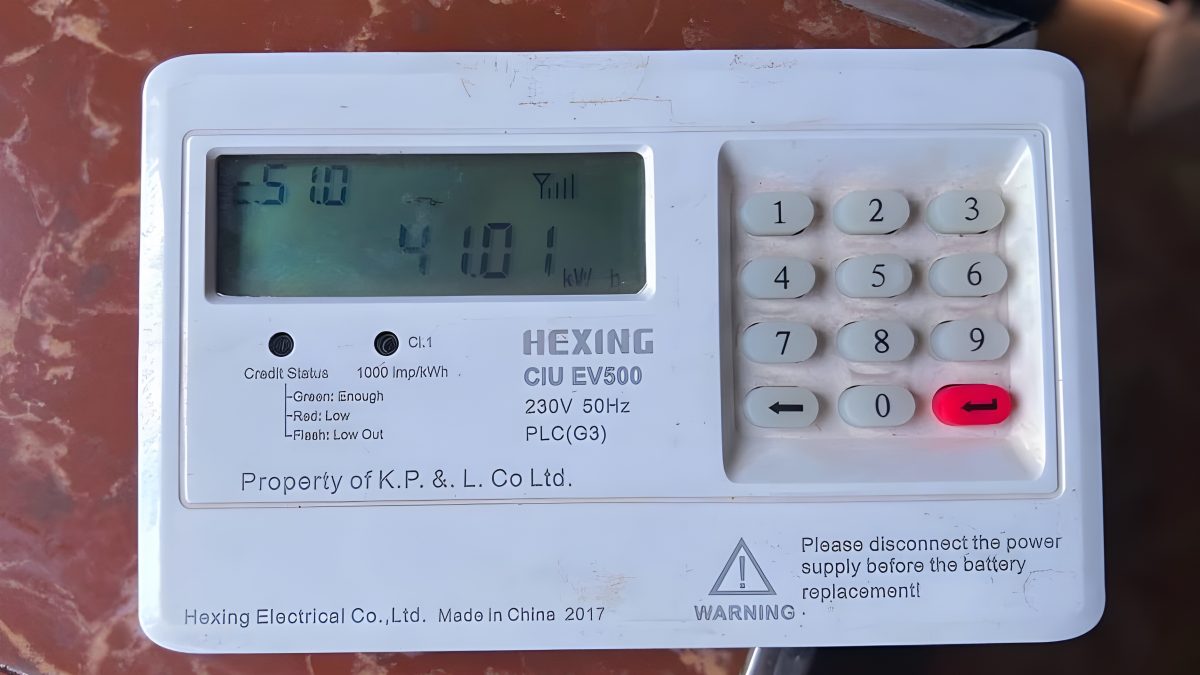Illegally using or interfering with electricity through theft, unauthorised connections, tampering with meters or vandalising infrastructure is a criminal offence in Kenya that can cost you heavy fines, prosecution and even prison time.
Courts in recent years have handed multi-year sentences and multi-million-shilling fines to people convicted of meter tampering, vandalism and running organised illegal-connection rings.
If you bypass a meter, tap the main line, tamper with seals, make an unauthorised connection or vandalise power infrastructure in Kenya you’re not just risking an electricity bill you’re committing offences that carry criminal penalties under Kenyan law.
Penalties range from fines (tens of thousands to millions of shillings) to imprisonment (months to several years), and courts have already imposed stiff sentences and fines on offenders. Utility companies also disconnect supply, seize equipment and work with police and the Directorate of Criminal Investigations (DCI) to investigate organised theft.
What the law and policy say
Kenya’s energy laws and utility enforcement policies treat electricity theft and infrastructure vandalism as serious crimes. Key penalties commonly quoted by regulators and media include:
- Illegal connection / fraudulent consumption: up to KSh 1,000,000 or one year’s imprisonment, or both; immediate disconnection of supply is typical.
- Breaking or tampering with meters and seals: penalties reported include KSh 50,000 or two years’ imprisonment, or both.
- Vandalism, theft or damage to power installations (pylons, transformers, streetlights): penalties reported up to KSh 5,000,000 or five years’ imprisonment, or both; vehicles used to transport stolen material can be confiscated.
Also read: Kenya Power to Upgrade 7.4 Million Prepaid Meters
These penalties are drawn from the Energy Act and other statutes. Courts and regulators regularly apply them when prosecuting offenders.
Common forms of misuse that attract prosecution
- Illegal/unauthorised connections (bypassing meters or linking directly to mains): Common in informal settlements and some commercial set-ups; utilities see this as both revenue loss and safety hazard.
- Meter tampering and seal-breaking: Opening meters or bypassing meter mechanisms to reduce recorded consumption. This is often detected by revenue protection units and carries stiff penalties.
- Vandalism and theft of infrastructure: Stealing copper wires, transformers, poles or damaging streetlights; this disrupts supply to entire communities and is heavily penalised. Organised syndicates have targeted high-value scrap in recent years.
- Fraudulent documentation or false declarations: Falsifying account details to obtain unauthorized supply or evade liability. Utilities prosecute fraud cases where evidence exists.
Over the past year, courts and enforcement agencies have stepped up action:
- Utilities and the DCI have carried out coordinated crackdowns, arresting suspects linked to syndicates that caused tens or hundreds of millions in lost revenue. Some high-profile busts and prosecutions in 2024 and 2025 resulted in multi-year jail terms or multimillion-shilling fines.
- Kenya Power’s revenue-protection teams frequently conduct operations, and hundreds of arrests have been reported during nationwide clampdowns. Prosecutions often follow where evidence is sufficient.
Also read: How we can Help Communities Create Sustainable Energy Access
These examples show regulators are using criminal law not just civil disconnection and billing to deter theft and protect the grid.
Why authorities treat it as a criminal matter
- Public safety: Illegal installations and tampered meters cause fires, electrocutions and major outages. Tampered wiring is a hazard for users and technicians.
- System reliability: Theft and vandalism increase non-technical losses, forcing utilities to raise tariffs or cut investment.
- Economic loss: Large-scale theft undermines revenue, affecting maintenance and expansion ultimately hurting consumers and national development. Because of these harms, utilities and the state use criminal sanctions as a deterrent.
What happens if you’re caught
- Immediate actions by the utility: disconnection of service, removal or sealing of tampered meters, demand for back payments and investigations by revenue protection teams.
- Criminal process: if evidence suggests intentional theft, tampering or vandalism, the matter can be handed to police and the DCI for prosecution. Penalties on conviction include fines, imprisonment or both; vehicles and equipment used in the offence can be seized.
how to stay on the right side of the law
- Never attempt to bypass or tamper with your meter. It’s illegal, dangerous and often more expensive if you’re caught (fines and jail) than paying legitimate arrears or arranging a payment plan.
- If you can’t afford reconnection or bills, talk to the utility. Kenya Power and other distributors have processes for regularisation and sometimes payment arrangements these are safer and legal.
- Report suspicious persons or vandalism. If you see tampering, theft of cables or people selling “cheap connections,” report to the utility or police. This helps protect your neighbourhood.



